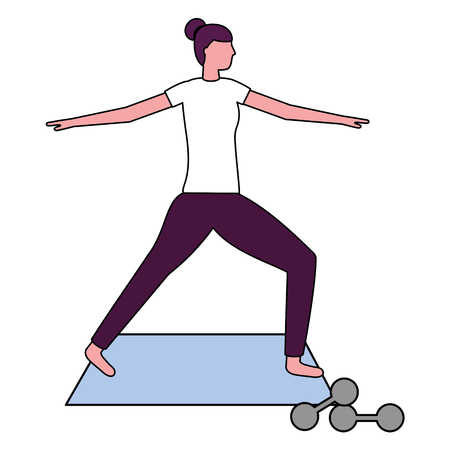Understanding Tai Chi and Qigong
Originating from ancient China, Tai Chi and Qigong are gentle yet profound practices that have steadily found their way into the daily routines of health-conscious individuals around the world—including here in the UK. At their heart, both practices focus on slow, mindful movements, deep breathing, and cultivating inner calm. Tai Chi is often described as “meditation in motion,” where graceful forms flow seamlessly from one to another. Qigong, meanwhile, centres on harmonising breath, posture, and intention to promote energy (qi) throughout the body. These philosophies naturally appeal to British seniors seeking a balanced approach to wellbeing—one that values connection with nature, gentle activity, and holistic health. By weaving these time-honoured traditions into your lifestyle, you can experience improved flexibility, reduced stress, and a renewed sense of vitality. Whether practiced in your local community hall or garden, Tai Chi and Qigong offer a mindful pause in our often-busy lives, complementing other healthy habits such as enjoying a wholesome diet and embracing the outdoors. For many across Britain, these practices provide not only physical benefits but also a gentle way to foster mental clarity and emotional resilience.
Benefits for Senior Wellbeing
As we journey through our golden years, maintaining good health and a sense of balance becomes more important than ever. Tai Chi and Qigong, both rooted in centuries-old Chinese traditions, offer a gentle yet highly effective approach to wellbeing that is especially suited to British seniors. These mindful practices blend slow, flowing movements with deep breathing and focused attention, creating a holistic experience that nurtures both body and mind.
Supporting Mobility and Balance
One of the key benefits of Tai Chi and Qigong is their ability to support joint mobility and improve balance—essential factors for staying active and independent as we age. The exercises are low-impact, making them accessible for people with varying levels of fitness or those managing chronic conditions such as arthritis. Regular practice can help reduce the risk of falls, a common concern among older adults in the UK.
Physical Benefits at a Glance
| Benefit | Description |
|---|---|
| Improved Balance | Gentle weight shifting and controlled movements strengthen stabilising muscles |
| Enhanced Mobility | Regular stretching increases flexibility in joints and muscles |
| Better Posture | Focus on alignment encourages upright, relaxed posture |
Nurturing Calm and Resilience
Tai Chi and Qigong are not just about physical exercise—they also foster emotional wellbeing. Mindful movement combined with deep, rhythmic breathing helps to calm the nervous system, reducing feelings of stress and anxiety. For many British seniors, this sense of inner calm becomes an invaluable resource in facing life’s everyday challenges with greater resilience and positivity.
Mental & Emotional Health Benefits
- Reduces stress levels naturally
- Promotes better sleep quality
- Boosts mood and mental clarity
By embracing Tai Chi and Qigong as part of your weekly routine, you are investing in a well-rounded approach to ageing gracefully—one that honours both tradition and the unique needs of older adults in the UK.

3. What You’ll Need to Get Started
Before you begin your Tai Chi or Qigong journey, it’s important to set yourself up comfortably and safely. Fortunately, getting started doesn’t require a great deal of specialised equipment—just a few thoughtful preparations can make all the difference, especially when considering the British climate.
Choosing the Right Clothing
Opt for loose-fitting, comfortable clothing that allows you to move freely. Breathable cotton or moisture-wicking fabrics work well, as they help regulate your temperature whether you’re practising indoors or braving the outdoors. A light jumper or cardigan might be handy for cooler mornings, and don’t forget a waterproof layer if you’re heading out into the unpredictable UK weather. Supportive, flat-soled shoes are best for beginners, providing both balance and comfort on grass, wooden floors, or even a patio.
Selecting a Safe Practice Space
Safety is paramount. At home, clear some space in your living room or conservatory—somewhere free from clutter and tripping hazards. If you prefer being outside, local parks and community gardens offer fresh air and beautiful scenery, which can enhance your experience. Look for level ground to avoid unnecessary strain on your joints; even a sheltered spot under a gazebo can help protect you from drizzle while still enjoying nature.
Other Helpful Items
A sturdy chair nearby is useful if you need a rest or wish to practise seated movements. Keeping a bottle of water close at hand helps you stay hydrated during longer sessions. For those who enjoy group activities, joining a local class means you might need to bring along a mat or cushion for comfort during warm-ups or cool-downs.
Adapting to the British Climate
The UK’s weather can be changeable, so flexibility is key. On brighter days, take advantage of the sunshine with gentle movement in your garden or local green space; on chillier or rainier afternoons, simply move indoors. Having options ensures your practice remains enjoyable all year round.
With these simple preparations, British seniors can embrace Tai Chi and Qigong confidently—rain or shine!
4. Warming Up: Simple Movements for Beginners
Before stepping into the graceful world of Tai Chi and Qigong, it’s essential to gently prepare your body. For British seniors, warming up is not just about preventing injury—its also a mindful way to settle into a new rhythm and enjoy the process. These warm-ups are designed to be gentle, accessible, and easy to follow in the comfort of your home or local community centre.
Why Warm Up?
Warming up helps increase circulation, loosen stiff joints, and awaken your muscles, making each movement safer and more comfortable. Especially as we age, taking time to ease into exercise supports joint health and minimises discomfort.
Gentle Warm-Up Exercises
Below are some simple warm-up movements tailored for beginners. You can perform these exercises seated or standing, depending on your mobility and confidence level.
| Exercise | Description | Tip for British Seniors |
|---|---|---|
| Neck Rolls | Sit or stand tall, slowly roll your head in a circular motion, first clockwise then anti-clockwise. | Move gently; avoid straining if you feel any discomfort. |
| Shoulder Circles | Lift shoulders towards ears, roll them back, down, and forward in a smooth circle. | Breathe deeply as you move; imagine letting go of tension with each exhale. |
| Ankle Rotations | Sit down and gently rotate each ankle in circles, both directions. | This is especially helpful if you’ve been sitting for a while—perfect before a cuppa! |
| Arm Raises | With soft elbows, raise arms overhead and lower them slowly while breathing out. | If raising arms high is tricky, lift only as far as comfortable. |
| Hip Circles | Stand with hands on hips (or use a chair for balance), gently circle hips both ways. | This eases stiffness from long walks or chilly weather. |
Focus on Safety and Comfort
Always listen to your body: Move within your own limits and never push through pain. Use a sturdy chair or wall for support if needed. If you have any medical conditions or mobility issues, consult with your GP before starting new exercises. Remember, Tai Chi and Qigong are about gentle progress—not perfection.
A Welcoming Start
A few minutes of these simple movements can make all the difference in how you experience Tai Chi and Qigong. Take your time, enjoy the calmness they bring, and celebrate every small step on your wellbeing journey. Whether you’re in the heart of London or relaxing by the seaside, these warm-ups help you begin with confidence and care.
5. Finding Classes and Community
Embarking on your Tai Chi and Qigong journey can feel even more rewarding when you share it with others. Across the UK, there are a wealth of opportunities to join local groups, participate in online sessions, or enrol in community courses. Many village halls, leisure centres, and community hubs offer beginner-friendly classes tailored specifically for seniors, making it easy to find a welcoming environment close to home.
For those who prefer a flexible approach, online sessions provide the chance to practise from the comfort of your living room. These virtual gatherings often bring together people from all over the country, creating a supportive network where you can share experiences and progress at your own pace. Websites such as Age UK and U3A frequently list reputable instructors and upcoming courses suitable for older adults.
Joining a group not only helps you stay motivated but also opens doors to new friendships and social connections. Many British seniors find that the sense of community built around Tai Chi and Qigong classes is just as valuable as the physical benefits. Don’t hesitate to reach out to local noticeboards, council websites, or your GP surgery for recommendations on trusted classes nearby. Whether you’re seeking gentle exercise, encouragement, or companionship, there’s likely a group ready to welcome you into their circle.
6. Incorporating Mindful Movement into Daily Life
Bringing Tai Chi and Qigong into your daily routine can be a gentle yet transformative way to support your wellbeing, especially within the beautiful landscapes and traditions of Britain. Here are some practical tips for weaving these mindful movements seamlessly into everyday life, allowing you to nurture both body and mind with ease.
Make the Most of British Green Spaces
Britain is home to countless parks, gardens, and common lands—perfect backdrops for mindful movement. Whether it’s a stroll through your local park or a visit to the village green, practising Tai Chi or Qigong outdoors helps you connect with nature and enjoy fresh air. Early mornings or quiet afternoons tend to offer the most peaceful settings, making it easier to focus and breathe deeply.
Blend with Local Traditions
You can enrich your practice by embracing British customs. Why not combine your morning routine with a gentle walk followed by a few minutes of Tai Chi near an ancient oak tree? Or invite friends for a mindful session after sharing a cuppa in the garden? This blend of old and new can help create lasting habits that feel both familiar and uplifting.
Tai Chi and Qigong Tips for Everyday Living
- Start small: Just five minutes of simple movements each day can make a difference.
- Use reminders: Place gentle prompts around your home—perhaps next to your kettle or favourite armchair—to encourage regular practice.
- Join a community: Many local councils and community centres offer group sessions, providing social connection along with exercise.
- Listen to your body: Move at your own pace, adapting postures as needed for comfort and balance.
Nurturing Your Wellbeing Journey
Incorporating Tai Chi and Qigong into daily life is less about rigid routines and more about finding moments of calm amidst the bustle. Let the rhythm of Britain’s seasons inspire you—gentle movements on crisp autumn mornings or mindful breathing as spring blossoms emerge. By making space for these practices within familiar surroundings, you’ll cultivate resilience, relaxation, and joy throughout your golden years.


